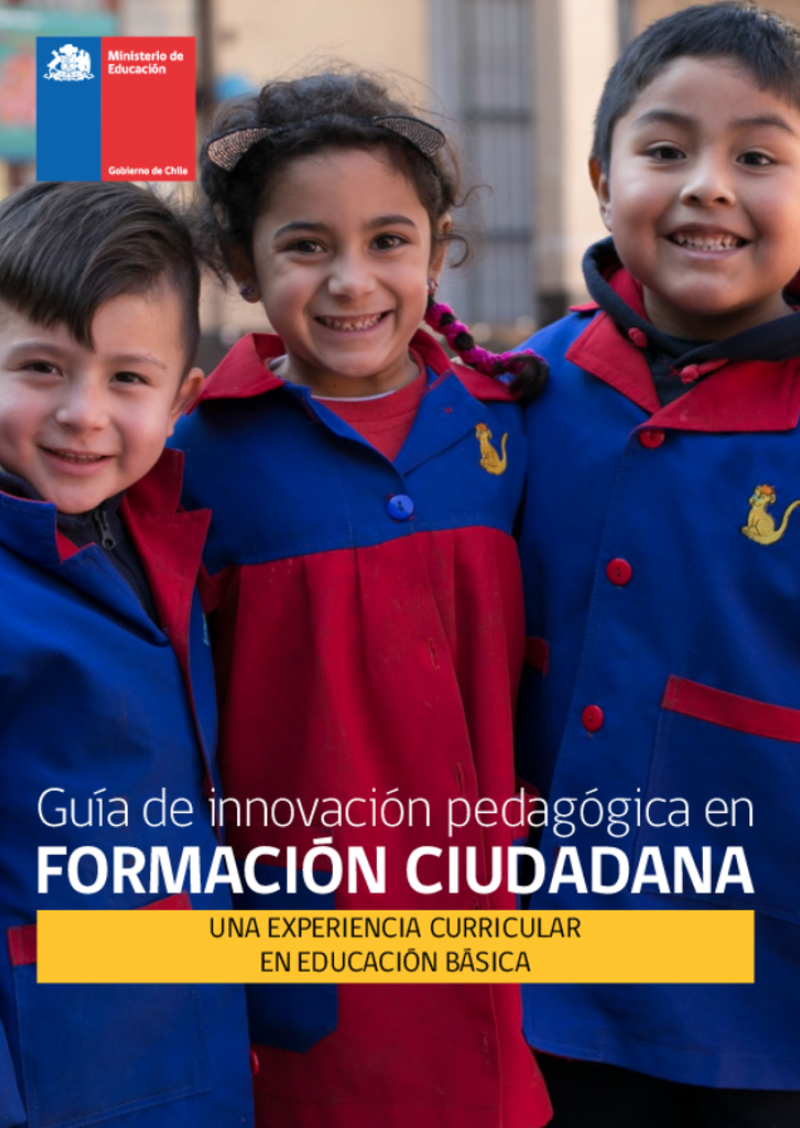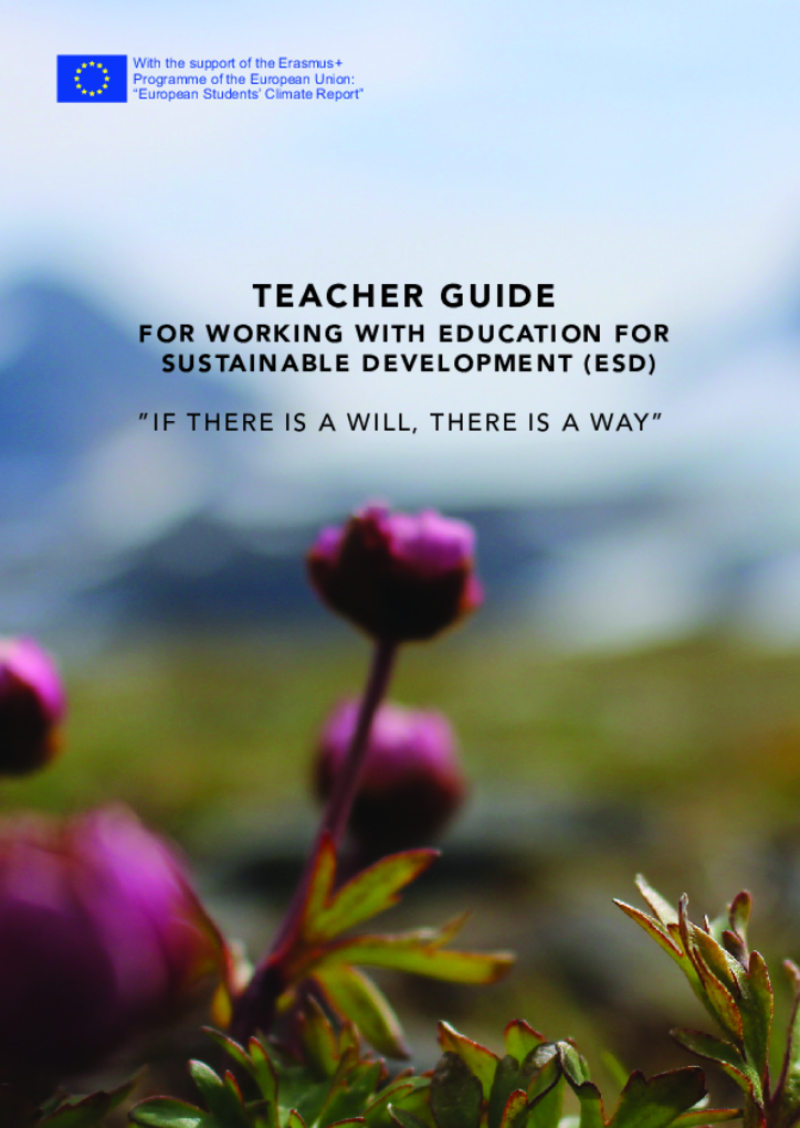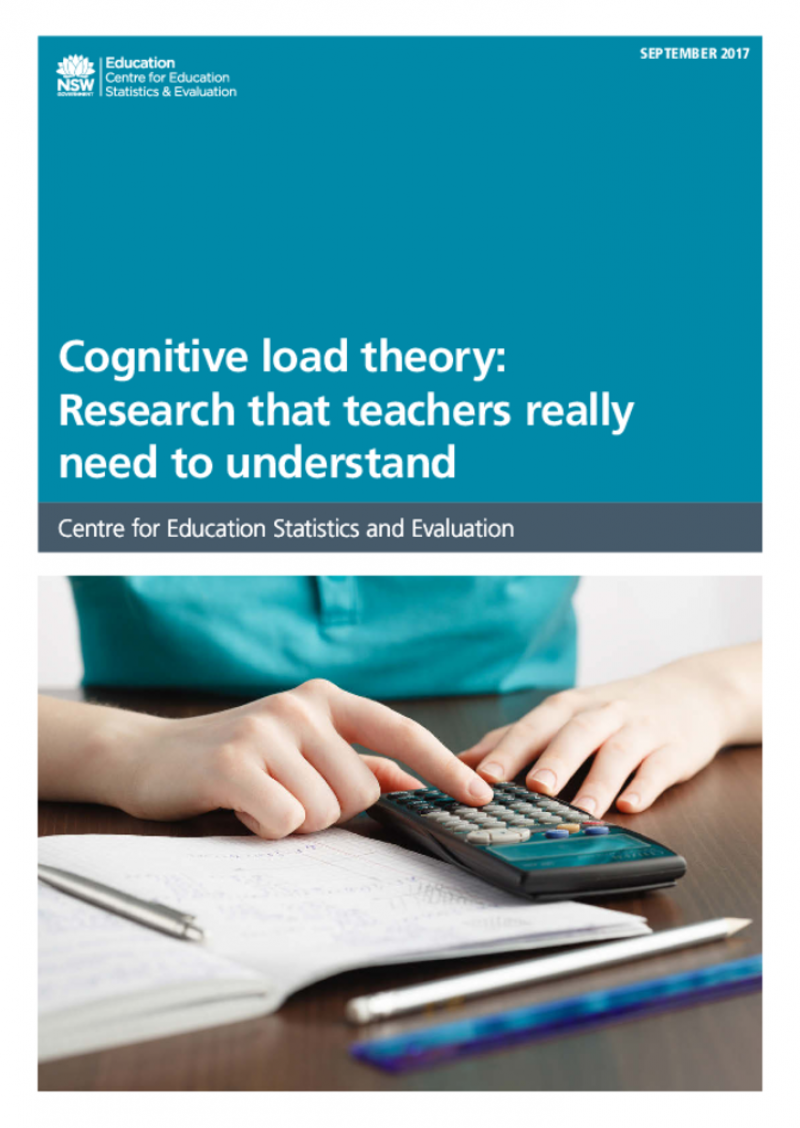Centre de Ressources pour les Enseignants
Affichage de 1 à 9 sur 9
Guía de innovación pedagógica en formación ciudadana
Esta guía ofrece a los docentes herramientas y estrategias para comprender y enseñar el concepto abstracto de ciudadanía en el aula. Proporciona recursos pedagógicos, actividades prácticas y ejemplos concretos para ayudar a los estudiantes a internalizar valores cívicos y democráticos. Además, incluye planes de lecciones y evaluaciones que facilitan para el docente la integración del tema en su práctica, promoviendo una educación integral y participativa. Con esta guía, los docentes pueden fomentar una comprensión profunda y crítica de la ciudadanía entre sus alumnos.
Play & resilience: a toolkit for teachers, caregivers, and other stakeholders
Play is an easy, natural and universal practice that builds resilience. Play comes naturally to all children- and is a seemingly simple and light-hearted phenomenon. The power of play as a pathway to building resilience needs to be leveraged to provide children with the opportunity to further explore play in their home and school environments.
This toolkit is therefore premised on the objectives to build the capacity of various stakeholders such as caregivers/teachers, school managers, curriculum planners and policy makers who are key actors in the process of growth and development of children. It is also aimed at equipping these stakeholders with the knowledge and pedagogical skills to translate research, policy and curriculum to practical knowledge and activities for children in the school environment. The toolkit offers directions for facilitators who will be working with caregivers/teachers using the materials and resources provided and other relevant materials available in an environment where it will be used.
Dossier pédagogique - Objectifs de développement durable
Dans cette ressource on retrouve une analyse des programmes scolaires français, intégrant les Objectifs de Développement Durable (ODD). Elle propose des séquences pédagogiques pour différents niveaux (fin primaire, début secondaire) afin d’aborder ces enjeux en classe. Le sujet est contextualisé et expliqué de manière détaillée pour aider les enseignants à mieux comprendre les enjeux des ODD et à les intégrer efficacement dans leur enseignement. Ces outils visent à sensibiliser les élèves aux défis globaux tout en respectant les exigences éducatives.
Kit pédagogique - Idées, ressources, méthodes et activités pour l'éducation interculturelle informelle avec des adultes et des jeunes
Il s’agit de la réédition mise à jour d’un manuel originellement publié en 1995 dans le cadre de la Campagne Européenne de la Jeunesse contre le Racisme, la Xénophobie, l’Antisémitisme et l’Intolérance. Le document est pensé comme un outil accessible aux praticiens de l’éducation informelle auprès d’un public d’âge varié. Il est divisé en 2 parties : la première offre le contexte et le cadre pour aborder les activités et méthodes proposées dans la seconde partie. On y retrouve également une liste de documents écrits et audiovisuels en différentes langues parlées au sein de l’Europe mobilisable dans des cadres éducatifs.
Teacher Guide for Working with Education for Sustainable Development (ESD)
The purpose of this teacher guide is to inspire teachers who want to work with climate change and sustainable development with their students. In this guide, you will find examples of teaching activities and teacher reflections on these activities. The activities described should be seen as inspiration. They could be adjusted according to a specific teaching context as preferred, thus aligned with the same objectives and perceived outcomes. The EU-project in which the activities were developed, was carried out with upper secondary students (aged 16-19). With smaller changes by the teachers, younger students can also work with the suggested activities. Beyond the goal of learning about climate change and sustainable development, the activities enable students to practice their critical thinking, and develop their communication and presentation skills.
Autonomisation des jeunes pour la construction de la paix et de la résilience et pour la prévention de l'extrémisme violent au Sahel et dans les pays environnants
Ce guide est conçu pour renforcer les capacités des enseignants du secondaire et des formateurs d’enseignants à intégrer une approche de renforcement de la paix et de la résilience dans l’éducation pour la prévention de l’extrémisme violent. Il s'appuye sur le guide «Pédagogie transformationnelle pour la construction de la paix» et il a été élaboré dans le contexte du Sahel et des pays voisins.
Le guide redéfinit le rôle des enseignants en les invitant à opérer un changement de paradigme consistant à adopter une pédagogie transformationnelle permettant aux apprenants de participer activement à leur propre apprentissage. La pédagogie transformationnelle que propose le guide se refère à la pédagogie active et à l’approche par les compétences (APC). Pour ce faire, le guide propose des activités visant un apprentissage par la pratique.
Recommendations for teaching and learning about the Holocaust
Benefiting from the expertise of delegates from more than 30 member countries, the IHRA Recommendations for Teaching and Learning about the Holocaust are intended to provide a basis for policymakers, practitioners, and educators that will help them:
1. Develop knowledge of the Holocaust, ensuring accuracy in individual understanding and knowledge and raising awareness about the possible consequences of antisemitism;
2. Create engaging teaching environments for learning about the Holocaust;
3. Promote critical and reflective thinking about the Holocaust including the ability to counter Holocaust denial and distortion;
4. Contribute to Human Rights and genocide prevention education
Teachers in crisis contexts peer coaching pack
In crisis contexts, where many teachers are untrained or undertrained, continued support is needed most; yet professional development in these settings is sporadic, of varied quality and often lacks any follow up support post-training. To address this lack of quality professional support for teachers in crisis contexts, the Teachers in Crisis Contexts Reference Group (TiCC) published the Training for Primary School Teachers in Crisis Contexts training pack in March 2016, a competency-based training designed specifically for teachers working in emergency settings.
Following the publication of the training pack, the TiCC began work on complementary Peer Coaching materials. Peer Coaching is continuous professional development (CPD) led by teachers for teachers. The continuous support teachers are able to provide to one another through Peer Coaching helps teachers make sustained positive changes in their teaching practice. Peer Coaching provides this support through two main activities: 1) Teacher Learning Circles (TLCs), and 2) Classroom Observations.
The main components include: The Facilitator’s Guide; Peer Coaching Toolkit, Level 1 - TLCs only; and Peer Coaching Toolkit, Level 2 - TLCs plus classroom observations.
Cognitive load theory: Research that teachers really need to understand
To improve student performance, teachers need to understand the evidence base that informs and helps improve their practice. An area of research with significant implications for teaching practice is cognitive load theory.
This paper describes the research on cognitive load theory and what it means for more effective teaching practice. The first part of the paper explains how human brains learn according to cognitive load theory, and outlines the evidence base for the theory. The second part of the paper examines the implications of cognitive load theory for teaching practice, and describes some recommendations that are directly transferable to the classroom.





